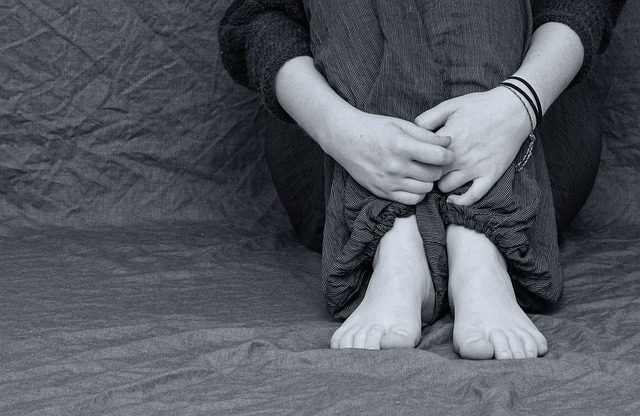“At least you aren’t being hit,” is a common dismissal heard by people suffering degrees of abuse in various relationships, including marriages, birth families, and even in relationships outside of families.
In addition to physical, sexual, mental, financial, and emotional abuse, due to recent high-profile cases we are hearing more about spiritual abuse in Muslim circles.
These cases of celebrity scholars and others taking advantage of their positions of authority have been a great opening for Muslims to begin understanding that spiritual abuse is unfortunately very common in our ummah, just as it is in other religions.

Not a buzzword
Spiritual abuse (or Religious abuse) is well-studied and is historically noted across religions. Simply put, it is a practice of distorting a religion to control, bully and/or harm someone. Even with the continued high-profile cases of Muslims engaged in spiritual abuse coming to light, many people are still unable to grasp that these scenarios are abuse at all, referring to wrongful and harmful beliefs about what abuse is and isn’t.
The practice of spiritual abuse among Muslims is so widespread that one man has made it his life’s work to combat it. Danish Qasim is the founder of In Shaykh’s Clothing, an organization that has “…spent over six years listening to and documenting stories of spiritual abuse, corroborating the stories, and consulting subject matter experts.” In Shaykh’s Clothing is the leading resource for Muslims to learn what spiritual abuse is and how to break free from it.
Examples of spiritual abuse
Financial exploitation
On the In Shaykh’s Clothing website there is a personal account of one woman who was tricked into gifting $10k to a sheikh who used his authority over her to avoid having their transaction, which she thought was a loan, put into writing as is the standard Islamic and business practice. Don’t be quick to blame the woman for not taking responsibility! This is a classic and common example of spiritual abuse, where a sheikh, imam, scholar or other person of authority acts outside the deen with you, as if he/she is above the deen.
Isolationism, separation, disenfranchisement or estrangement from family and friends erroneously using religion to support the isolation
In our own Ask The Counselor section there are numerous queries related to this subject: usually it is husbands and in-laws restricting women’s activities and even her visiting her family, but there are other incidents were religion is used to isolate and thereby control victims. While setting firm boundaries with difficult family members is healthy, if a religious authority or some other person uses religion to insist you should cut ties with someone, this is a huge red flag for abuse. This person may be trying to isolate you to control you.
Intimidation, forcing spiritual authority over others
This is something we often see on mosque boards as well as within families were age is often equated with religious superiority. People are made to bend to the desires of spiritual authorities even though they are in the wrong.
False accusations and repeated criticism used to argue the victim is lacking faith, a deviant or similar
Converts often experience undue criticism from their spouse pointing to their past or the cultural background as a way to delegitimize the convert’s faith. Parents may also do this to their children, especially teenagers and young adults, treating them as if their contemporary behaviors are out of line with the deen when really they are not.
Denying an individual’s right to exercise their free will
Forcing someone to wear hijab, fast or pray are all examples of denying freewill. These and similar examples are very common in Islam as abusers can easily cite “difference of opinion” even though “no compulsion” is at the core of Islam.
Sexual abuse, physical abuse, mental abuse and emotional abuse, again using religion to sanctify it
Two common examples of sexual abuse among Muslims are: Insisting a spouse be intimate otherwise the angels will curse them, and arguing that rape doesn’t exist within marriage. Physical abuse of any sort, including spanking is directly against the core teachings of Islam. Emotional and mental abuse may be harder to identify, but they are valid forms of abuse. Generally speaking, if being around someone makes you feel bad or anxious, there must be some unhealthy relationships dynamics – perhaps that person has abusive behavior.
While many people are stuck seeing physical abuse as the only true form of abuse, let’s admit that dysfunctional families are common today, including among Muslims, leading to many abusive individuals among us – even our religious leaders. What may seem like an occasional incident of spiritual abuse appearing in the news, Qasim insists that “spiritual abuse is epidemic,” those one off incidences are only the ones that come to light.
Protecting yourself
We hear the word “narcissism” used so frequently, that is may also be mistaken as a buzzword, unfortunately it is a very common personality disorder – yes, among Muslims too. Qasim has cited narcissism at the crux of spiritual abuse and is important to learn to identify the key characteristics of narcissistic behavior and abuse to protect yourself from current and future abuse. Fortunately this is exactly what he set up In Shaykh’s Clothing to help you do. It’s also important that we, as a community, stop contributing to the suffering of victims of any abuse by quickly dismissing their allegations and even attacking them.
 Great thanks to Danish Qasim for helping with this article and to the crucial work of In Shaykh’s Clothing. If you think you may have been affected by spiritual abuse, please reach out to Qasim and his team.
Great thanks to Danish Qasim for helping with this article and to the crucial work of In Shaykh’s Clothing. If you think you may have been affected by spiritual abuse, please reach out to Qasim and his team.
* Please note, the views and opinions in this article are that of the author’s.
First published: February 2019
